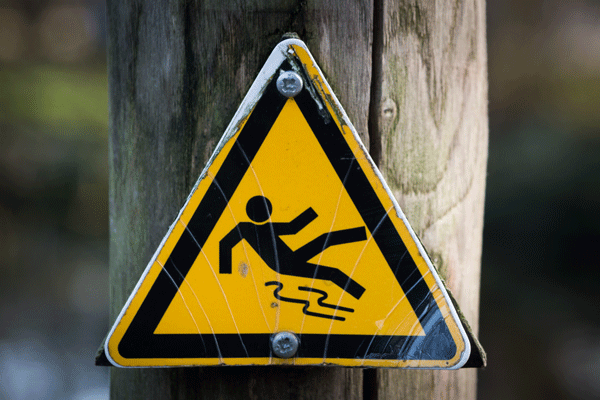Dangerous premises cases, often called premises liability gives you the legal right to expect safe conditions when on another’s property, but the reason that you’re on the property matters. There are three classes of premises liability plaintiffs.
- Trespasser – Someone with no permission to enter the property.
- Licensees – Those who have permission to be on the property (express of implied by circumstances), such as solicitors and those there to provide a service (cable service technician, police, and others).
- Invitee – Someone who have been explicitly invited to the property, such as a social guest or a customer at a business.
Trespassers are generally only entitled not to be purposefully harmed by the property owner. Children are the exception to this rule. For example, if you have a pool in your back yard and a child falls into it and drowns because you didn’t have it fenced in, you could be held liable.
Licensees have a bit more expectation from the property owner.
Invitees have the most legal rights if injured on another’s property, as the property owner is expected to exercise reasonable care to protect invited guests against both known dangers and those that would be revealed by inspection.
Some examples of hazards and dangerous conditions include:
- Wet floors
- Uneven ground or walking surfaces
- Broken or uneven stairs
- Broken handrails
- Poorly designed or improperly installed ramps
- Broken or insufficient lighting
- Lack of security (cameras, locks, guards)
- Snow and ice in many, but not all circumstances
Generally, premises owners are liable if they:
- Caused the unsafe condition, thus causing the subsequent accident; or
- Knew (or should have known, under the law) about the condition, but did nothing to fix it, warn of it, or barricade it.
Other property related injuries, such as dog bites, make the owner strictly liable, regardless of the status of the victim.
Dangerous premises cases often require a lawsuit, because the law places a duty on the victim to look out for his or her own safety, and in fall cases, reasonable minds might differ as to how much, if any, of the responsibility is on the victim. It is important to speak with an attorney as soon as possible after a fall injury to preserve evidence and get a fair evaluation.
If you have been hurt on another’s property, contact The S.E. Farris Law Firm at 314-A-LAWYER (314-252-9937) or visit http://www.FarrisLaw.net today for a free evaluation and strategy session.

